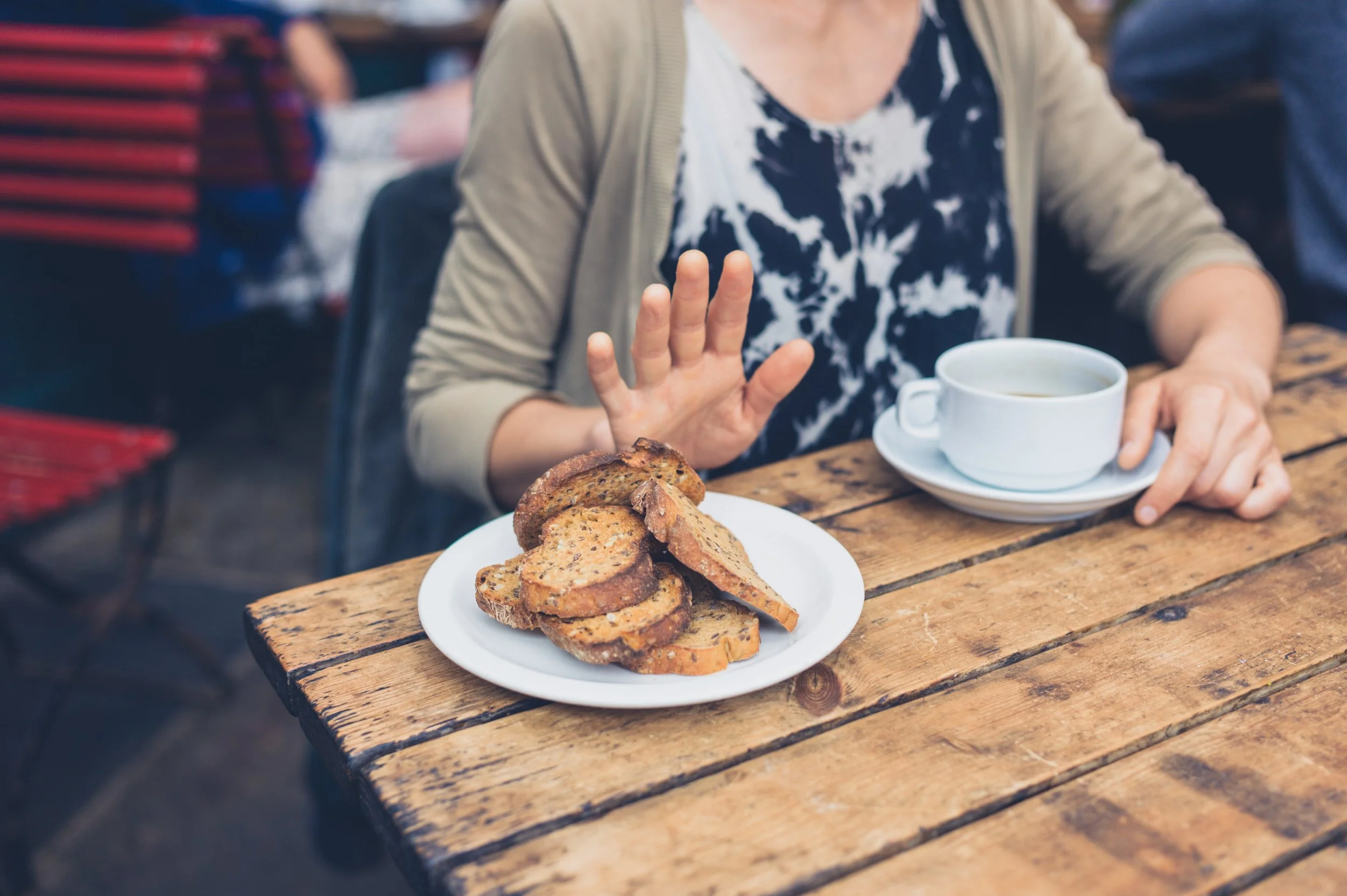Do you or a loved one suffer from celiac disease? If so, you’re not alone. It’s thought that about 1 in 133 Americans has this condition, making it more common than Crohn’s or MS. Unfortunately, many American comfort food dishes and staples of the Standard American Diet are loaded with gluten. If you haven’t been diagnosed with celiac disease but suspect that gluten might be causing your uncomfortable symptoms, get in touch with a colorectal specialist right away. In this post, we’ll answer a common question: what is the main cause of celiac disease? We’ll also take a look at foods that contain gluten and foods to avoid if you have celiac disease.
Celiac Disease
Celiac disease is an auto-immune disorder with hereditary components. This means that, if you have a relative with the disease, you are more likely to have it yourself. Celiac disease symptoms range from mild to extremely severe, sometimes not even relating to digestion. Some of the hallmark symptoms of the disease are abdominal bloating, abdominal pain, anemia, chronic diarrhea, fatigue, bone loss, and arthritis.
What Is the Main Cause of Celiac Disease?
Many of our patients and their loved ones wonder what is the main cause of celiac disease? And the simple answer is gluten. In patients with celiac disease, the body reacts to the presence of gluten, which can be found in many unexpected places. In the next section, we’ll take a look at some foods that contain gluten. These are foods to avoid if you have celiac disease.
Foods to Avoid if You Have Celiac Disease
As you might have guessed, you’ll want to avoid everything that could contain even a little bit of gluten. Since celiac disease is an autoimmune disorder, symptoms can worsen over time if exposure is not stopped. For this reason, you’ll need to be on the lookout for some odd foods that may not look like they contain gluten but actually do. Here’s a list of some sneaky foods that contain gluten.
Soy and Teriyaki Sauce
Some sauces and condiments are thickened or stabilized with gluten-containing elements. Teriyaki sauce, for example, can either be thickened with a gluten thickener or something like corn starch (which is naturally gluten-free).
Corn Flakes and Crisp Rice
While it might seem like a corn or rice cereal should inherently be gluten-free, these cereals are often made in cereal factories that process all kinds of grains. When it comes to gluten allergies and celiac disease, same-factory contamination can be a trigger. Furthermore, some sweeteners (like barley malt sweetener) on these cereals could contain gluten.
Salad Dressings, Marinades, Vinegar, Mustards, and BBQ Sauces
Again, stabilizers and sweeteners often find their way into shelf-stable salad dressings. When reading labels, be on the lookout for any sneaky additives - in addition to the ever-present “CONTAINS: WHEAT”. Other condiments and sauces like malt vinegar, rye vinegar, and mustards made with these kinds of vinegar are not safe.
Anything With These Names:
Wheat, flour, semolina, spelt, farina, barley, rye, bran, graham, durum, emmer, faro, rye, Khorasan, udon, and einkorn all contain gluten. These are all variations of grains that contain gluten. Processed ingredients (rye vinegar, barley sweetener) made from these grains should also be avoided.
Other Foods and Items
Other foods and food substitutes may also contain hidden glutinous ingredients. Foods like meat broth, meat stock, and meat substitutes can have gluten-containing flavorings, while candies like licorice and chocolate might have stabilizers or sweeteners that contain gluten. Some drinks can contain gluten, too, like beer, malt beverages, and beverages sweetened with barley sweeteners. Some supplements and medications also use glutinous ingredients like sweeteners and stabilizers. Be on the lookout as you purchase shelf-stable goods.
Avoiding Celiac Disease Triggers
One of the best things you can do, both for your health and to avoid your celiac disease symptoms, is to eat a diet full of whole foods. This will give you ultimate control over what goes into your body, and you’ll know that there are no odd sweeteners or thickeners in anything you make and eat. If you’re looking for some fun, new processed foods to try, we have a list of seven gluten-free foods you can try.
If you haven’t already received a diagnosis, and you suspect that you might have celiac disease, get in touch with one of our colorectal specialists here at the Colorectal Clinic of Tampa Bay.

